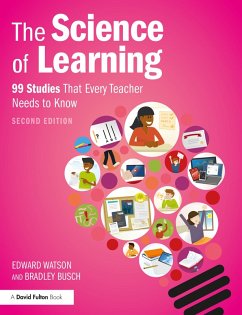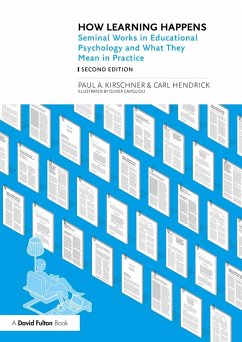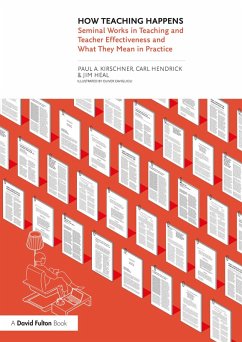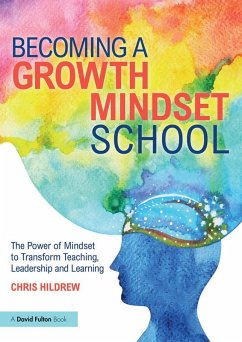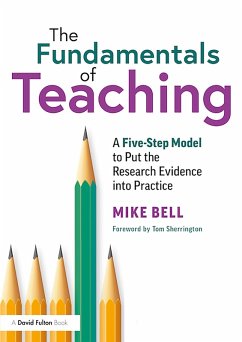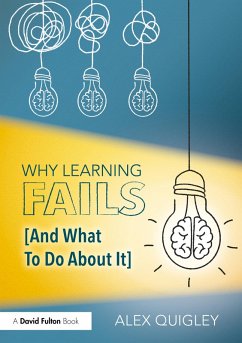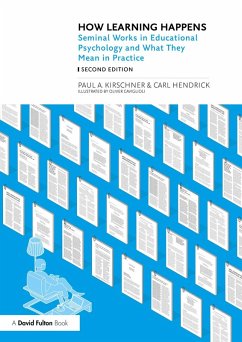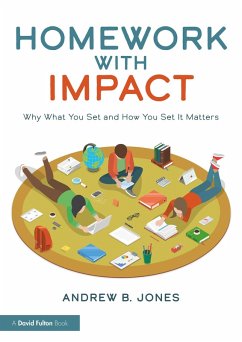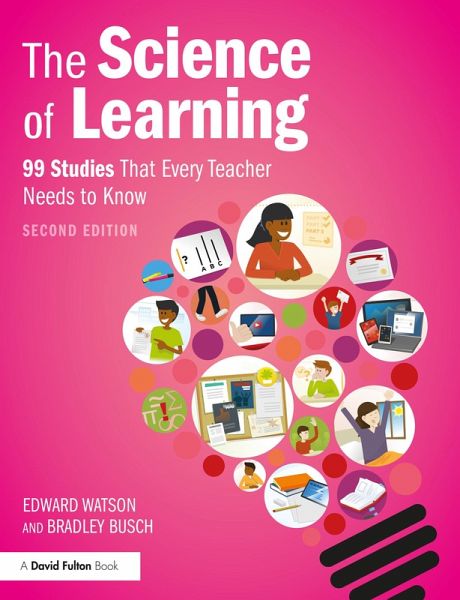
The Science of Learning (eBook, PDF)
99 Studies That Every Teacher Needs to Know
Versandkostenfrei!
Sofort per Download lieferbar
19,95 €
inkl. MwSt.
Weitere Ausgaben:

PAYBACK Punkte
10 °P sammeln!
Supporting teachers in the quest to help students learn as effectively and efficiently as possible, The Science of Learning translates 99 of the most important and influential studies on the topic of learning into accessible and easily digestible overviews. Building on the bestselling original book, this second edition delves deeper into the world of research into what helps students learn, with 22 new studies covering key issues including cognitive-load theory, well-being and performing well under exam pressure.Demystifying key concepts and translating research into practical advice for the c...
Supporting teachers in the quest to help students learn as effectively and efficiently as possible, The Science of Learning translates 99 of the most important and influential studies on the topic of learning into accessible and easily digestible overviews. Building on the bestselling original book, this second edition delves deeper into the world of research into what helps students learn, with 22 new studies covering key issues including cognitive-load theory, well-being and performing well under exam pressure.
Demystifying key concepts and translating research into practical advice for the classroom, this unique resource will increase teachers' understanding of crucial psychological research so they can help students improve how they think, feel and behave in school. From large- to small-scale studies, from the quirky to the iconic, the book breaks down complicated research to provide teachers with the need-to-know facts and implications of each study. Each overview combines graphics and text, asks key questions, describes related research and considers implications for practice. Highly accessible, each overview is attributed to one of seven key categories:
A hugely accessible resource, this unique book will support, inspire and inform teaching staff, parents and students, and those involved in leadership and CPD.
Demystifying key concepts and translating research into practical advice for the classroom, this unique resource will increase teachers' understanding of crucial psychological research so they can help students improve how they think, feel and behave in school. From large- to small-scale studies, from the quirky to the iconic, the book breaks down complicated research to provide teachers with the need-to-know facts and implications of each study. Each overview combines graphics and text, asks key questions, describes related research and considers implications for practice. Highly accessible, each overview is attributed to one of seven key categories:
- Memory: increasing how much students remember
- Mindset, motivation and resilience: improving persistence, effort and attitude
- Self-regulation and metacognition: helping students to think clearly and consistently
- Student behaviours: encouraging positive student habits and processes
- Teacher attitudes, expectations and behaviours: adopting positive classroom practices
- Parents: how parents' choices and behaviours impact their childrens' learning
- Thinking biases: avoiding faulty thinking habits that get in the way of learning
A hugely accessible resource, this unique book will support, inspire and inform teaching staff, parents and students, and those involved in leadership and CPD.
Dieser Download kann aus rechtlichen Gründen nur mit Rechnungsadresse in A, B, BG, CY, CZ, D, DK, EW, E, FIN, F, GR, HR, H, IRL, I, LT, L, LR, M, NL, PL, P, R, S, SLO, SK ausgeliefert werden.




